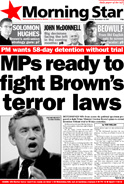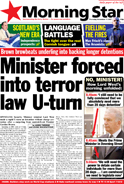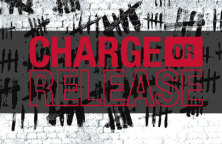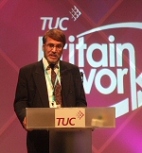 MPs ready to fight Brown’s terror laws
MPs ready to fight Brown’s terror laws
By Tom Mellen
Morning Star, 16 November 2007
DETERMINED MPs from across the political spectrum prepared to fight Prime Minister Gordon Brown’s plans to extend detention without trial to 58 days on yesterday.
Mr Brown has declared that he believes that a cross-party consensus can be found on the issue. But the Tories, Liberal Democrats and many Labour MPs are opposed to any extension of internment beyond the 28-day compromise that was agreed after former premier Tony Blair was defeated in the Commons in 2005 over proposals for a 90-day limit.
Back then, 49 Labour rebels voted against the government. Mr Brown enjoys a working majority of 69 seats in the Commons. If he can win the backing of some Northern Irish parties, over 40 Labour MPs would have to rebel to save traditional British liberties.
Socialist Campaign Group chairman John McDonnell MP reported that “the opposition within Labour ranks to these ‘fortress Britain’ proposals remains the same as in 2005. It has certainly not decreased.”
Under the government’s latest proposals, detention without charge beyond 28 days could only be triggered in “exceptional circumstances” agreed in advance by Parliament. This would include cases where there are “multiple plots or links with multiple countries or exceptional levels of complexity.” It would also require the Home Secretary’s agreement and the extension of the powers would be time-limited. There have already been assurances about greater judicial approval and parliamentary scrutiny.
But Mr McDonnell described the new plans as, “in effect, no different from the old ones. “Mr Brown’s claim to be concerned about our civil rights has been undermined in practice by his attacks on basic human rights. He now has a significant battle on his hands,” Mr McDonnell warned.

 “In recent years, anti-terror legislation, coupled with a multi-fold increase in stop-and-search rates, hundreds of false raids and detentions, control orders that are based on flimsy evidence and inconsistent judicial sentences have created a sense of suspicion, fear, intimidation, distrust and possibly even hatred throughout society. And not only within the Muslim community for whom these measures seem to have been designed, but throughout society as a whole….
“In recent years, anti-terror legislation, coupled with a multi-fold increase in stop-and-search rates, hundreds of false raids and detentions, control orders that are based on flimsy evidence and inconsistent judicial sentences have created a sense of suspicion, fear, intimidation, distrust and possibly even hatred throughout society. And not only within the Muslim community for whom these measures seem to have been designed, but throughout society as a whole…. Minister forced into terror law U-turn
Minister forced into terror law U-turn Britain’s existing 28-day limit on holding terror suspects without charge is already far longer than that for any comparable democracy, according to a study to be published tomorrow.
Britain’s existing 28-day limit on holding terror suspects without charge is already far longer than that for any comparable democracy, according to a study to be published tomorrow. The head of the Muslim Council of Britain has said the government’s approach to terrorism is creating an atmosphere of suspicion and unease.
The head of the Muslim Council of Britain has said the government’s approach to terrorism is creating an atmosphere of suspicion and unease.